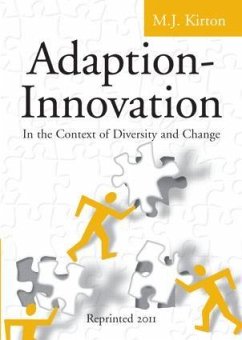
Diversity Ideologies in Organizations
Versandkostenfrei!
Versandfertig in 1-2 Wochen
78,99 €
inkl. MwSt.

PAYBACK Punkte
39 °P sammeln!
Since the increased attention toward diversity in the workplace, the concepts of "diversity initiatives" and "diversity management" have become a common place in many conversations among academics and practitioners alike. The diversity movement in the workplace originated from the increased avocation for equal treatment of minority groups due to the dynamic composition of the modern workforce. Many organizations were forced to face these changes and the dilemma of how to respond to group differences to maintain and/or increase organization effectiveness and productivity. This volume will prese...
Since the increased attention toward diversity in the workplace, the concepts of "diversity initiatives" and "diversity management" have become a common place in many conversations among academics and practitioners alike. The diversity movement in the workplace originated from the increased avocation for equal treatment of minority groups due to the dynamic composition of the modern workforce. Many organizations were forced to face these changes and the dilemma of how to respond to group differences to maintain and/or increase organization effectiveness and productivity. This volume will present new research on the colorblindness versus multiculturalism debate, assist in broadening the diversity ideology conversation, share this conversation across social science domains including industrial/organizational psychology, social psychology, and law and public policy, and highlight how the nature of diversity ideology may be fluid and therefore be different depending on the diversity dimension discussed.














